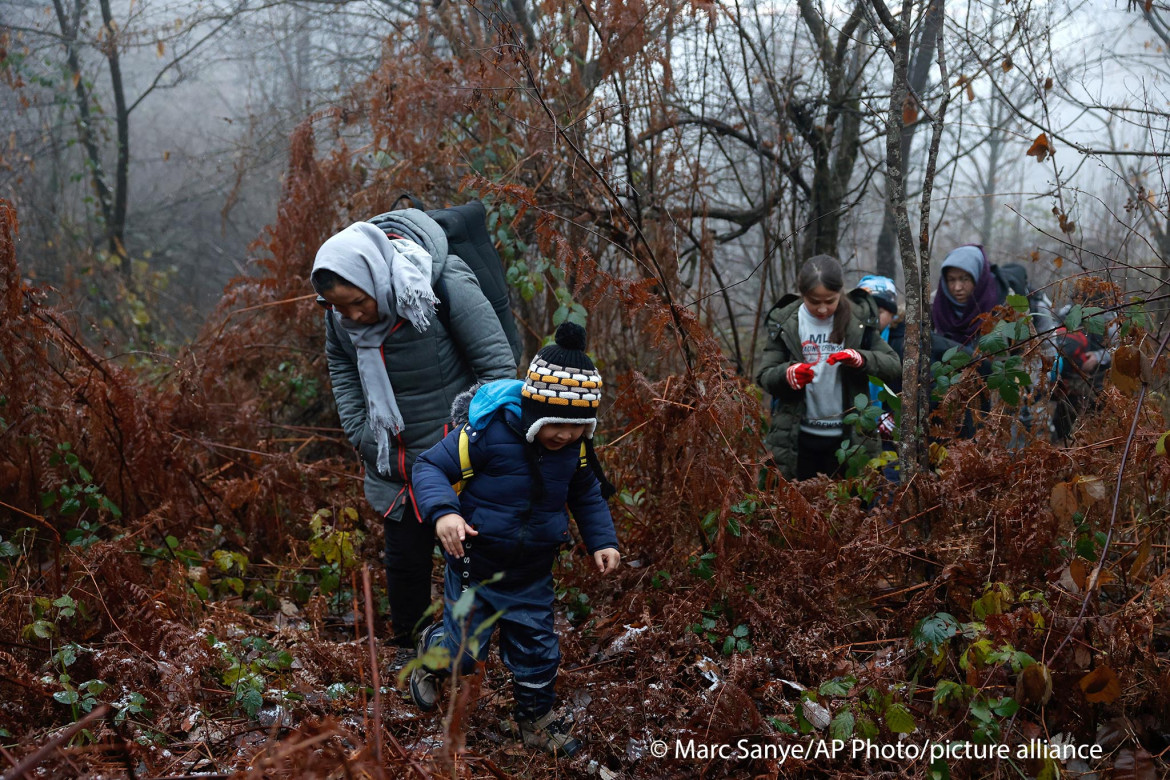Reportage
The horror next door: A report on the Balkan route
‘We try to sweep them under the rug, as if these human beings were dust.’ This is happening inside our civilized Europe.

They arrive in Trieste wounded, hungry, terrified. Along the Balkan route, they have suffered beatings and thefts, they have been brought back to Bosnia one, two, three, even 10 times. Now they are here. In small groups, every day, in search of a train that will take them farther into Europe, to the north, far away, where perhaps a life is possible for them too. Their bodies are battered, but in their eyes there is that spark that won’t go out: hope, the will to live.
In Trieste, there is nothing for those who arrive on foot, for those who want to continue the journey—only the volunteers in front of the station who are there every afternoon to offer a meal, a blanket, a pair of shoes and first aid to treat wounds. This year, the municipality didn’t even organize the usual “cold plan”: the Help Center and all the day centers have been closed for a year, those who have no roof over their heads sleep in the street. Or under the enormous arches of the former silos, among garbage, rats and frozen mud.
What is happening along the border is well documented: migrants are returned to Slovenia, which takes them back to Croatia, which takes them back to Bosnia.
It matters little if they are entitled to international protection, if they are fleeing from Syria, Afghanistan, Iraq. No one allows them to submit an application, no one asks them who they are.
What happens in Croatia has been known for years: brutality, torture, seizure of everything, from cell phones to bottles of water, even shoes, and there are documented cases of deaths due to necrosis of the feet. They sleep in the woods, eat what little they can find, drink from puddles. Dozens drown in the rivers they try to cross.
It seems that many people don’t see, despite the photos, the videos, the plentiful documentation. It seems that many are not interested in the heavy Western burden of responsibility that has determined this exodus of peoples.
There has been much discussion about the buses that brought groups of migrants back to Italy at Ventimiglia, but very little about the hundreds of people that Italy is returning into the hands of torturers on the eastern border. “We try to sweep them under the rug, as if these human beings were dust,” said Nello Sclavo on Thursday at the press conference of Grei250, a network of NGOs, doctors, journalists and lawyers advocating for migrants’ rights. For years, writing in the pages of Avvenire, Sclavo has been documenting the human rights violations and inhuman situations in which those who go on this journey find themselves, and a new installment of his investigation is about to be published, “to raise awareness among Italian authorities and public opinion.”
Because what is happening on the eastern border is even more serious than what we know about Libya and the Mediterranean route: because here, it’s Europe, here we are talking about European countries, this is happening inside our civilized Europe.
It seems impossible to accept, and yet Italy is consciously violating any notion of legality, in a long-term and organized manner, and, moreover, is openly saying so. “It had never happened before, and it is the most disturbing part of this horrible reality: Italy is admitting to illegality, and indeed, is claiming it,” says Giancarlo Schiavone for ASGI, recalling the written answer provided by the Ministry of Interior last summer: migrants found within ten kilometers of the border are rejected to Slovenia. And Minister Lamorgese, or anyone else, cannot claim to be unaware that this means to Croatia next, and then to Bosnia, in full violation of human rights.
Bosnia—where even the head of mission of the intergovernmental organization IOM has announced they are withdrawing from the Lipa camp because it is unmanageable. He sees only two possible scenarios: “The first is that at the last minute, Sarajevo makes a decision that the people will be moved to places where they can access adequate living conditions, and that an additional center will be found for the 1,500 people who are now sleeping outdoors.” Otherwise, he adds, nothing can be expected but a humanitarian catastrophe. Because the thousands of migrants crowded in Bosnia are in tents put up next to a landfill, because too many are sleeping rough, because the government wants to move them from a camp without assistance to another where there is not even water.
Don De Robertis of the Migrantes Foundation called on everyone to honor Christmas, which is drawing near, and to listen to Pope Francis, in the knowledge that the Holy Night was a night of anguish: a young couple who couldn’t find a place to rest, forced to lay their newborn child where the animals were eating. ”No one can call himself a Christian who closes the door in the face of a brother.”
And let us speak out, let us denounce, let us not stop investigating. “A spotlight should be put on the Balkan route, journalists should go to those places and see where the violation of human rights is taking place. Let’s create a network to stop the attempts at silencing and leaving us in the dark,” said Beppe Giulietti.
Originally published at https://ilmanifesto.it/lorrore-della-porta-accanto-un-rapporto-sulla-rotta-balcanica/ on 2020-12-18
